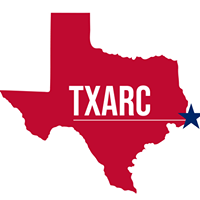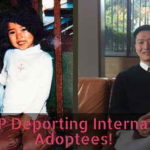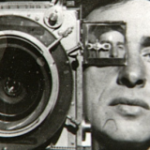Adoptees protest laws that keep them from heritage
FINDING THEIR ROOTS
By Matthew I. Pinzur
The Macon Telegraph
For 30 years, Michelle Hills knew her own name. Two weeks ago, that changed.
Adopted in Pasadena, Calif., when she was 6 weeks old, Hills recently obtained her original birth certificate after years of searching. She was born Krista M. Branman.
“It’s very interesting to look in the mirror now,” said Hills, 30, who now lives in Macon. “These other two people thought I should be called Krista.”
But many adoptees have not had the same success researching their pasts, prompting more than a dozen protests across the country for Adoptee Rights Day on Thursday. A small group, organized by Hills, demonstrated at the Macon-Bibb County Health Department, where birth certificates are kept.
Most states, including Georgia, will only release an adoptee’s original birth certificate with the birth parents’ consent. What adoptees get instead is an altered document that names the adoptive parents. Some birth certificates, like Hill’s, have other information, such as birthplace, changed as well.
When adoptees cannot locate their birth parents, only an order from a Superior Court judge can release the records, and curiosity about heritage is rarely enough for a judge to make such an order, said Michael Lavoie, the state director of vital records.
“Most cases I’ve seen have to do with medical reasons,” said Lavoie, who only sees three or four orders each year to unseal records in Georgia.
Thursday’s demonstrations, sponsored by a California group called Bastard Nation, was originally meant to celebrate an Oregon law called Measure 58, set to go into effect today, that would have opened adoptees’ original birth certificates. Those demonstrations became protests in cities from Los Angeles to Boston, when a last-minute injunction blocked the legislation.
“Now we’re back in the battle,” Hills said. “The people at the polls said this should be allowed.”
A 1990 Georgia law provides adoptees “non-identifying” information, which withholds personal data about the parents but releases medical and genetic records.
But when Lucia Carswell, 39, an adoptee from Macon, applied for that information, her $50 fee was returned and she was told there was no such data in her record.
“When I go to the doctor and he asks about my medical history, I can only shrug,” said Carswell, carrying a picket sign reading, “The truth is out there, but it is sealed.”
Petitioning the court to open sealed birth records is an arduous process, Hills said, and can take months and cost thousands of dollars in legal fees.
Georgia also has a government agency that acts as a middleman through the wall of confidentiality. The state adoption registry will contact birth parents and ask for their consent to release birth records, but there is usually a fee. The service is free if the birth parents have already registered and are waiting to be found. Otherwise, the agency charges $250 to locate and contact birth parents. Even then, only about 80 percent of parents agree to release the records, according to Sandra Milhollin, an adoption consultant with the state office of adoption.
By contrast, anyone else born in Bibb County can purchase a notarized copy of their birth certificate for $10 in just minutes at the Emery Highway office of the health department.
“I have a family of my own to support,” Carswell said. “Why should I have to pay thousands of dollars for the same information?”
The heart of the debate, experts said, is a tug-of-war between birth parents’ right to privacy and children’s rights to their past.
The latter seem to be winning, according to Peter Gibbs, executive director of the Center for Adoption Research and Policy at the University of Massachusetts Medical Center.
“In the mainstream of adoption, there is a significant move toward more openness,” Gibbs said. “There is not a huge outcry from people saying more openness is a terrible, horrible thing.”
Laws protecting birth parents’ identities were originally designed to protect them from outsiders, Gibbs said, not from their children. They were generally passed in the 1950s, when the stigma against unwed mothers was far greater than it is today.
“We’re at a time when those values and mores are changing again,” Gibbs said.
Hills believes her mother was likely in such a situation, a victim of rape or some other out-of-wedlock pregnancy. But she doesn’t care and doesn’t believe her mother would, either.
“It’s a stigmatization from the ’50s and ’60s,” she said.
But a Washington, D.C., group maintains that birth parents, not their children, should decide if that stigma has passed.
“It’s their private business,” said William Pierce, president of the National Council for Adoption. “Privacy is a critical cornerstone of our society.”
Pierce’s organization supports voluntary release of information, as well as matching registries such as Georgia’s. But it objects to violating the legal confidentiality most parents are granted upon adoption.
“It was on that basis that people entered into the adoption agreement,” Pierce said. “Many of the birth mothers were victims of rape, and for those women in particular, the prospect of having a past promise of confidentiality broken is very alarming.”
Pierce does believe in releasing every available shred of medical, genetic, social and other non-identifying information.
But groups such as Bastard Nation argue that’s not enough.
“I have a history; when I say I’ve got my dad’s temper or my mom’s figure, you can see it,” said Chris Coggins, who demonstrated Thursday even though she is not adopted. “It’s not about wanting to find your birth parents. It’s a civil rights issue.”


 New York Adoptee Rights Coalition
New York Adoptee Rights Coalition











